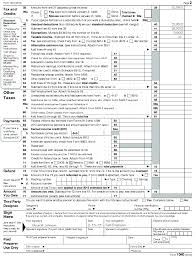POST-JUDGMENT DISCOVERY IN DIVORCE OR CHILD SUPPORT CASES
CA Family Code Section 3665
How Do I Get My Ex-Spouse's Yearly Tax Returns?
Family Code section 3665 is typically applied in situations following entry of a final judgment in a divorce or paternity action, or where no support related proceedings are presently pending, when one party wants to see whether there has been any material change in the financial circumstances of the other that might justify a Request for Orders relating to increased child or spousal support by way of modification.
While it is a great tool in theory, often these requests are ignored by the other side. If that occurs, or if you think it might, you may want send a cover letter along with this Request that references the sanctions made available by Family Code section 3667 - or, you might want to send a follow-up letter after a couple of weeks pass without the required response. It is always a good idea if you think you may be forced to file a motion to compel somebody to do anything in a family law case to first send them a politely word letter, that is non-threatening as possible, to remind them of their statutory duties. Section 3667 clearly does allow you to recover any attorney fees incurred to obtain these records. Since you are not entitled to conduct discovery after Judgment in the absence of a pending action, you could use that motion itself to then serve a deposition notice, subpoena, or production request to obtain the desired information that otherwise could effectively blocked by an objection.
The Judicial Council Form that you should use for these requests is the FL-397 "Request for Income and Expense Declaration After Judgment." Section 3665 requires them to attach their tax returns to that document. The Income and Expense Declaration requires in its pre-printed language that a party attach their most recent tax return.
Finally, one area where cooperation is not easily obtained is where a former spouse or the other parent has remarried, and files joint tax returns with this new person. There are severe restrictions on what "new-mates" are required to disclose. One way to address that objection is that the new-mate's income can be redacted from the tax returns. The fact of remarriage and resulting joint tax filings does not constitute a valid reason for refusing to produce the income and expense declaration, and the joint return (although a resisting party might try redacting the new-mate's information - otherwise, you might have to have a Judge examine them in chambers and rule on how much new-mate information will be disclosed, after a Request for Order is filed).
Author: T.W. Arnold, III, C.F.L.S.

